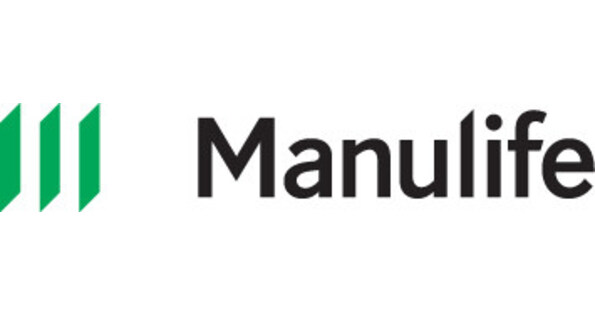KKR’s investment in Peak Re: A bet that underscores shifting sentiment

The announcement of KKR’s minority investment in Hong Kong–based reinsurer Peak Re is one of the smaller carrier M&A deals struck within the past quarter, but has interesting implications for the M&A cycle beyond its size.
The global investment firm has a long and storied relationship with insurance, from its historic role in American Re to the Willis buyout back in the 1990s, the ILS fund Nephila in 2013 to MGAs, brokers such as Alliant and USI along with InsurTechs in the 2020s.
But in recent years, KKR and the wider private-equity appetite for balance-sheet reinsurance exposure has been anaemic.
For KKR, Peak Re marks its first investment in a carrier in a decade.
Other PE firms funded carrier or hybrid carrier-fronts in the US primary hard market of the early 2020s, but reinsurance equity investments have been avoided by the PE sector in general even through its own hard-market phase since 2023.
Reinsurers in particular are often seen as less attractive M&A targets, given the lack of public market franchise value for this segment. However, as this publication argued earlier this year, reinsurer M&A can be more successful than insurer M&A.
KKR’s stake in Peak Re at just over 11.2% might be a tiny commitment in dollar terms for the PE firm’s scale – Peak Re’s equity base was just $1.2bn at year-end 2024, against KKR’s $553bn in assets under management.
It looks less like a strategic move and more like a tactical play.
But it is one that underscores the chance that reinsurance-heavy deals are belatedly joining in the M&A fray, with recent deals including Nationwide buying Markel Re renewal rights, and Sompo picking up Bermudian hybrid Aspen.
KKR is better positioned now should it wish to “flip” its holding in Peak Re, with a broader emerging base of credible buyers amongst strategics, than it would have been a year or two ago when reinsurers were focussed on organic growth.
As we have written before, with rates slowing down across the board, carriers are now more likely to consider buying as a way of continuing to secure top-line expansion.
After several years of rate-driven expansion, underwriting gains are being eroded and demand is slow, leaving acquisitions as one of the few routes to keep growing scale and diversify portfolios.
A reinsurer in recovery
For Peak Re, the deal comes after several challenging years linked to its Chinese parent, Fosun International. The reinsurer’s growth and ratings were constrained as Fosun faced liquidity strains and investors questioned contagion risk.
Moody’s put the carrier and Fosun itself on negative review in July 2022, citing Fosun’s large debt maturities, the risk of credit contagion in a Chinese property market downturn and weak liquidity as reasons for the move.
It downgraded Peak Re from A3 to Baa1 a month later, and in October, AM Best put Peak Re on a negative outlook.
However, some years of remediation later and the company is now on a stronger footing with ratings agencies. In April this year, Moody’s upgraded its outlook on the firm to positive from stable, affirming its Baa1 rating, whilst in September AM Best affirmed its A- rating with a stable outlook.
AM Best cited the firm’s “financial agility” in accessing capital markets, robust capitalisation and governance separation from Fosun as supports for the rating.
In recent years Peak Re has taken actions to tighten underwriting and reshape its book, but at the cost of top-line momentum.
Gross written premium rose from $ 2.1bn in 2021 to $2.3bn in 2022, before pulling back to $1.8bn in 2023 as it made cuts to nat-cat exposure, with topline flat the following year, using IFRS 4 data.
The combined ratio – which is reported on an IFRS 9/17 basis – hit 110.1% the same year its top line peaked, but has also since moved into the underwriting black, with the carrier posting healthy sub-90% ratios in 2023-2024.
That trajectory offers precisely the opportunity investors seek.
And for Peak Re, KKR and fellow PE firm Quadrantis Capital’s names on the investor roster will support that trajectory, establishing credibility with institutional investors and clearing up its minority shareholders’ list.
Prudential had ‘indirectly’ owned its minority share that has now been disposed of, and for Peak Re this means that any further share sales in the future will be easier to coordinate amongst an aligned group of shareholders, rather than trying to also bring along a minority carrier investor with a non-strategic holding.
Who would buy Peak Re next?
Peak Re remains a mid-sized, A- rated platform with access to Asian cedants and an established treaty book, which is a scarce asset for any global reinsurer seeking footprint in the region.
But what’s the endgame for KKR?
Strategic buyers could include established carriers looking to expand in Asia or gain a foothold in Bermuda with Peak Re’s Class 3B platform which launched earlier this year with a focus on underwriting casualty reinsurance.
The company’s experienced management and improved transparency would make it a credible bolt-on or foundation for a larger play.
Peak Re has been led by CEO Franz-Josef Hahn since its launch in 2012, with the carrier’s wider leadership having remained largely stable through the era of Fosun challenges.
Stepping back, KKR’s investment can be viewed as less about Peak Re alone and more about what it signals for the wider market.
Private equity may be tiptoeing back toward underwriting balance sheets, but only under tightly controlled conditions with a clear path to monetisation.
For Peak Re, it’s a vote of confidence. For the wider P&C (re)insurance market, it may be among the signs of a shift on carrier M&A, with several London deals now inked and a run of IPOs in the US also now afloat.
With brokers under pressure from slowing rates along with elevated debt costs, carriers may be attracting more interest as investors seek out selective access to diversifying underwriting risk. As organic growth becomes harder to find, some carriers will be prepared to go after deals with their peers.
One thing is certain, KKR’s investment in Peak Re comes at an inflection point for the reinsurance M&A cycle.
Got a tip for us? Reach out confidentially here.
link




